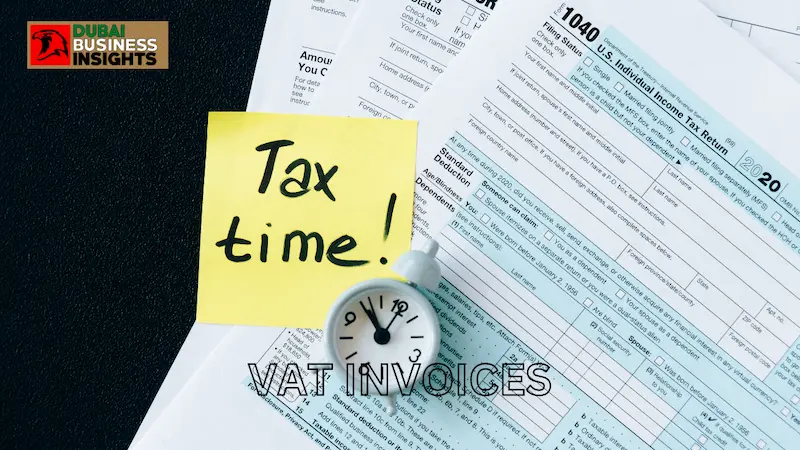VAT Tax in UAE for Business Owners: For business owners in the United Arab Emirates (UAE), understanding VAT (Value Added Tax) is not just essential; it’s legally mandatory. This comprehensive guide is designed to provide you with a detailed understanding of VAT, from registration and filing to benefits and compliance requirements. Let’s dive into the world of VAT as a business owner in the UAE.
What is VAT and Why for Businesses?
VAT, or Value Added Tax, is a consumption tax that is levied at each stage of the supply chain. It’s crucial for businesses as it helps fund public services while impacting financial transactions. Understanding how VAT works is key to a compliant operation.
Registration for VAT

- Mandatory Registration: Businesses exceeding an annual threshold of AED 375,000 must mandatorily register for VAT. Voluntary registration can be done if your supplies and imports exceed AED 187,500.
- Documents Required: To register, you will need a set of documents, including trade licenses, passports, and detailed financial information. Consult with the Federal Tax Authority (FTA) for the full list of necessary documents.
Online VAT Registration
- Step 1: Access the FTA Portal: Visit the FTA website and create an e-services account.
- Step 2: Complete the Registration Form: Provide accurate details, including your business information, bank details, and passport information for the authorized signatory.
- Step 3: Verification Process: The FTA will verify your application. Be prepared to provide any requested documents.
- Step 4: Receive TRN: Upon approval, you’ll receive a unique Tax Registration Number (TRN). This is essential for all VAT-related transactions.
VAT Tax Invoices

- Issuing Invoices: Businesses must issue a valid VAT invoice for all taxable supplies. This invoice should include the TRN, a description of goods/services, unit price, and applicable VAT amount.
- Recording Invoices: Keep a record of all invoices as these will be required for VAT returns.
VAT Returns
- Filing Frequency: VAT returns are typically filed quarterly, but businesses with an annual turnover exceeding AED 150 million should file monthly.
- Submission Period: Returns must be submitted within one month and ten days after the end of the tax period.
- Calculating VAT Payable: Calculate the VAT amount that your business has collected (output VAT) and the VAT you have paid on your expenses (input VAT). Pay the difference.
Benefits for Business Owners
- Legitimacy: VAT registration lends your business an aura of legitimacy, which can be beneficial in client and supplier relationships.
- Credit Eligibility: Registered businesses can claim input VAT on eligible expenses, reducing the overall VAT liability.
- Compliance: Proper VAT practices help you avoid hefty penalties for non-compliance.
Common Misconceptions
- Input VAT Reclaim: Not all input VAT can be reclaimed. Understanding which expenses are eligible is vital.
- VAT on Imports: Importing goods has specific VAT requirements that businesses should be aware of.
Compliance and Penalties
- Penalties: Non-compliance can result in penalties. It’s essential to understand your responsibilities and obligations.
VAT Audits
- Audit Process: The FTA may conduct VAT audits to ensure compliance. Keep comprehensive records to ease this process.
Conclusion
VAT is an integral part of doing business in the UAE. While this guide provides an extensive overview, it’s crucial to consult a tax professional to ensure your business complies with all regulations. Understanding VAT is an ongoing process, and with proper knowledge and records, you can navigate it successfully. Your commitment to compliance ensures the stability and growth of your business within the UAE’s VAT framework.
VAT Tax in UAE for Business Owners
FAQ
Q1: What is VAT, and why is it important for businesses in the UAE?
Value Added Tax (VAT) is a consumption tax imposed on the value added to goods and services at each stage of production or distribution. It is levied as a percentage of the final selling price, meaning that it’s ultimately paid by the end consumer. VAT is essential for businesses in the UAE for several reasons:
Revenue Generation: VAT is a significant source of revenue for the government, which can be used for public services and infrastructure development.
Economic Diversification: By implementing VAT, the UAE aims to reduce its reliance on oil revenues and create a more diversified and sustainable economy.
Global Compliance: VAT is a globally recognized tax system, and the UAE’s adoption of VAT aligns it with international standards, making it more attractive to foreign investors and businesses.
Contribution to Public Services: VAT revenues support various public services, such as healthcare, education, and infrastructure, benefiting the entire community.
Q2: What is the VAT registration threshold for businesses in the UAE?
In the UAE, businesses are required to register for VAT if their annual taxable supplies (revenues) exceed the mandatory registration threshold of AED 375,000. However, businesses can also choose to voluntarily register for VAT even if their supplies are below this threshold. This option is often exercised by smaller businesses that wish to reclaim input VAT on their expenses.
Q3: Can a business voluntarily register for VAT even if it doesn’t meet the mandatory threshold in the UAE?
Yes, businesses in the UAE can voluntarily register for VAT even if their annual taxable supplies are below the mandatory threshold of AED 375,000. This is a strategic choice for businesses that anticipate substantial expenses and want to reclaim the input VAT they pay on these expenses. Voluntary registration can help optimize a business’s finances and competitiveness.
Q4: How often are VAT returns filed in the UAE, and what’s the submission period?
VAT returns in the UAE are typically filed on a quarterly basis. The submission period is within 28 days from the end of each tax period. This means that for the first quarter, the deadline is April 28th; for the second quarter, it’s July 28th; for the third quarter, it’s October 28th, and for the fourth quarter, it’s January 28th of the following year. However, some businesses with specific criteria might be required to file monthly returns.
Q5: What are the common benefits for businesses that comply with VAT regulations in the UAE?
Compliance with VAT regulations in the UAE offers several advantages to businesses:
Credibility: VAT compliance enhances a business’s reputation and credibility, as it demonstrates a commitment to following legal and financial standards.
Reclaiming Input VAT: Registered businesses can reclaim the VAT they pay on their expenses, leading to potential cost savings.
International Trade: VAT compliance is often a requirement for businesses engaged in international trade, as it simplifies customs and cross-border transactions.
Avoiding Penalties: Compliance ensures that a business avoids penalties and legal actions for tax evasion.
Competitive Advantage: VAT-compliant businesses are better positioned to compete and engage in government contracts.
Access to Government Services: VAT compliance is often a prerequisite for accessing government services and public tenders.
Record Keeping: VAT compliance encourages proper record-keeping and accounting practices, which can help businesses make informed financial decisions.

